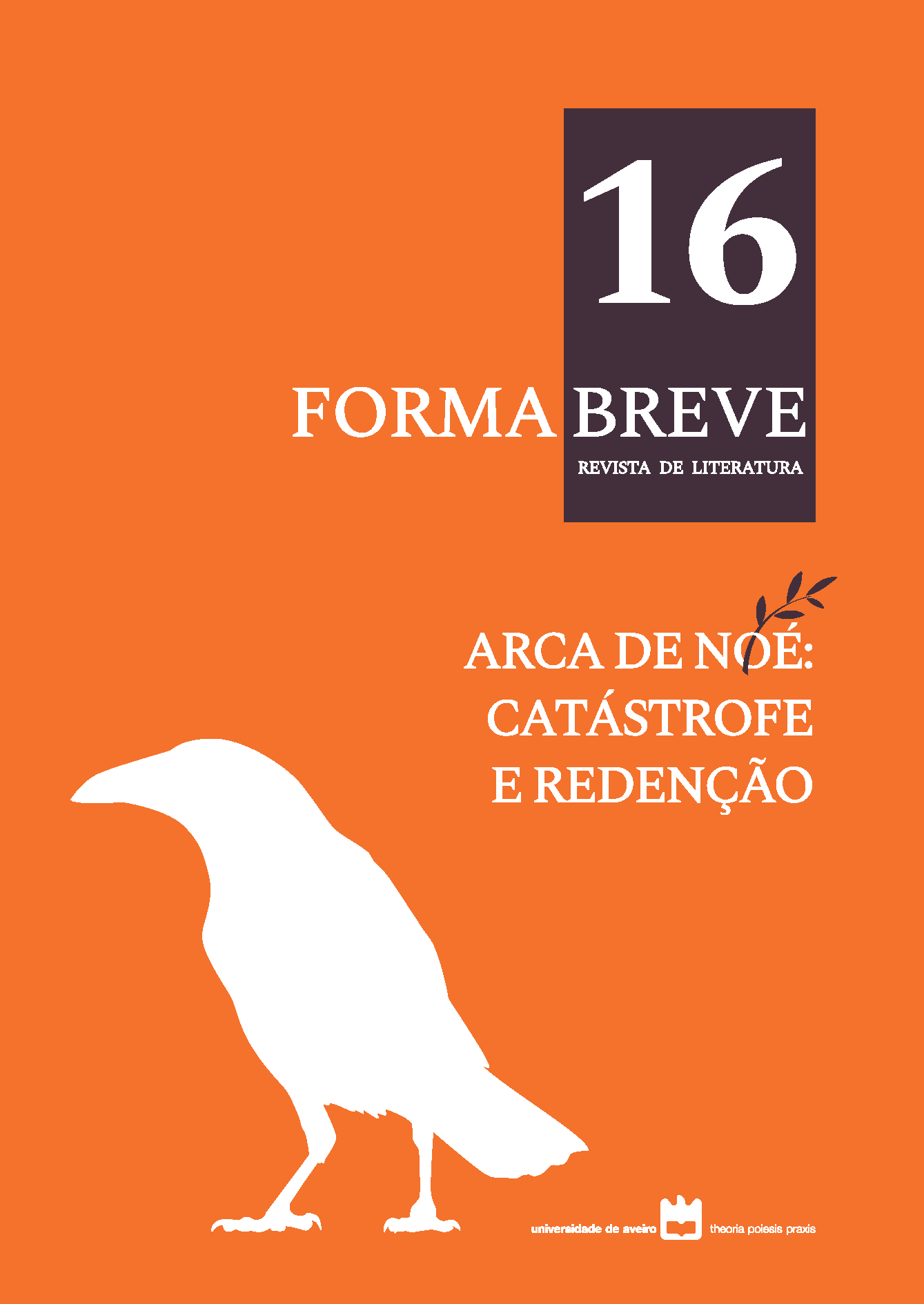Eucatastrophe and the redemption in J. R. R. Tolkien’s The Silmarillion
Abstract
This paper proposes to analyse the elements of eucatastrophe and redemption in The Silmarillion by J R. R. Tolkien, in terms of values derived from the Christian Gospels. In the novel, it is made apparent that from the beginning of the creation of Ëa (the world), dark and evil forces have assailed the peace and harmony maintained by the forces of good (Eru Ilúvatar, the Valar and Maiar). To maintain this cycle of harmony, the Valar entrusted all races with this tremendous task. These so-called races are given distinct histories and abilities. Elves were naturally good at heart, though capable of using free will and swerving towards evil as well; they also could return to goodness once again they learned their lesson. Their goal is to achieve redemption (after vanquishing Morgoth, Sauron and their allies), the so called happy ending that is continually postponed for thousands of years. Despite the narrative and symbolic density of the invented races, genealogies and histories laid down by Tolkien in The Silmarillion, this paper will argue that ultimately values traceable to the familiar New Testament Gospels lie behind the book’s modulations of good and evil.
Downloads
References
The English Standard Version Bible (2007). Wheaton, Illinois: Crossway.
Carpenter, H. & Tolkien, Ch. (Eds.). (1995, 1981). The Letters of J.R.R. Tolkien. London: Harper Collins Publishers.
Cornwell, N. (1990). The Literary Fantastic – From Gothic to Postmodernism. London: Harvester Wheatsheaf.
Crowe, E. L. (1995). Power in Arda: Sources, Uses and Misuses. In P. Reynolds & G. H. Good Knight (Eds.), Proceedings of the J.R.R. Centenary Conference, Keble College, Oxford, 1992. Oxford: The Tolkien Society.
Davenport J. J. (2003). Happy Endings and Religious Hope. In G. Bassham & E. Bronson (Eds.), The Lord of the Rings and Philosophy – One Book to Rule Them All. Peru, Illinois: Open Court.
Day, D. (2013, 2003). The World of Tolkien. Mythological Sources of “The Lord of the Rings”. London: Octopus Publishing Group Ltd.
Harvey, D. (2016). The Song of Middle-Earth: J R. R. Tolkien’s Themes, Symbols and Myths. London: Harper Collins Publishers.
Măcienau, L. (2016). Masculine and Feminine Insights Into the Fantastic World of Elves: J.R.R. Tolkien’s the Lord of the Rings and Muriel Barbery’s the Life of Elves. Gender Studies – The Journal of West University. Warsaw, Poland: De Gruyter Open.
McIntosh, J. S. (2017). The Flame Imperishable. Kettering, Ohio: Angelico Press.
Parker, J. 2004. Mythology: Myths, Legends and Fantasies. Ed. Janet Parker and Julie Stanton. New Jersey: Wellfleet Press.
Tolkien, Chr. (1969, 1968). Understanding Tolkien and The Lord of the Rings. London: Warner Paperback Library.
Tolkien, J. R. R. (2006, 1937). The Hobbit. London: Harper Collins Publishers.
Tolkien, J. R. R. (2008, 1947). On Fairy Tales. London: Harper Collins Publishers.
Tolkien, J. R. R. (2005, 1954). The Fellowship of the Ring. London: Harper Collins Publishers.
Tolkien, J. R. R. (2004, 1954). The Two Towers. London: Harper Collins Publishers.
Tolkien, J. R. R. (2007, 1955). The Return of the King. London: Harper Collins Publishers.
Tolkien, J. R. R. (1999, 1977). The Silmarillion. London: Harper Collins Publishers.
Tolkien, J. R. R. (2001, 1980). Unfinished Tales. London: Harper Collins Publishers.
Tolkien, J. R. R. (2000, 1981. Letters. London: Harper Collins Publishers.
Tolkien, J. R. R. (2002, 1983). The Book of Lost Tales – Part One. London: Harper Collins Publishers.
Tolkien, J. R. R. (2002, 1984). The Book of Lost Tales – Part Two. London: Harper Collins Publishers.
Tolkien, J. R. R. (2015, 1993). Morgoth’s Ring. London: Harper Collins Publishers.
Tolkien, J. R. R. (2015, 1994). The War of the Jewels. London: Harper Collins Publishers.
Tolkien, J. R. R. (2007, 2008). The Children of Húrin. London: Harper Collins Publishers.
Tolkien, J. R. R. (2017). Béren and Lúthien. London: Harper Collins Publishers.
Tolkien, J. R. R. (2018). The Fall of Gondolin. London: Harper Collins Publishers.
Williams, D. T. (2018). An Encouraging Thought: The Christian Worldview in the Writings of J. R. R. Tolkien. Cambridge, Ohio: Christian Publishing House.
Wood, R. G. (2003). The Gospel According to Tolkien: Visions of the Kingdom in Middle-Earth. Louisville, Kentucky: Westminster John Knox Press.

This work is licensed under a Creative Commons Attribution 4.0 International License.

